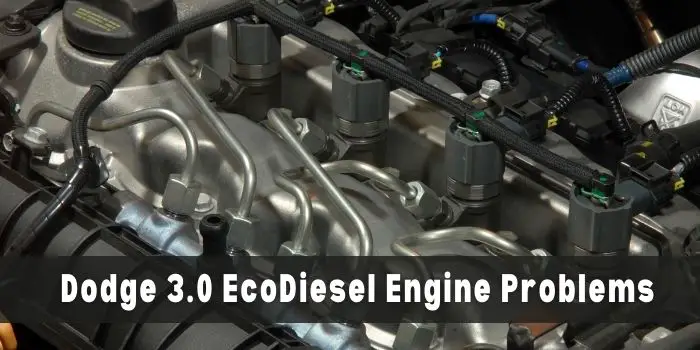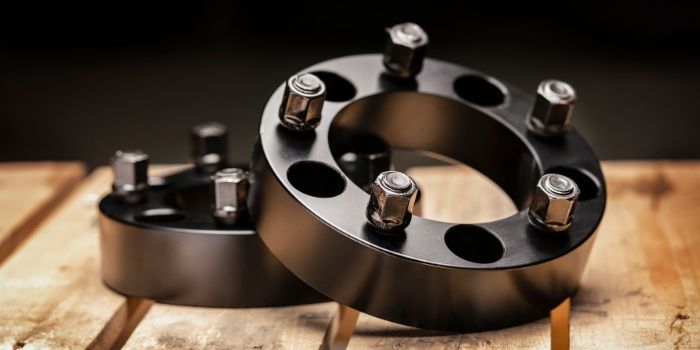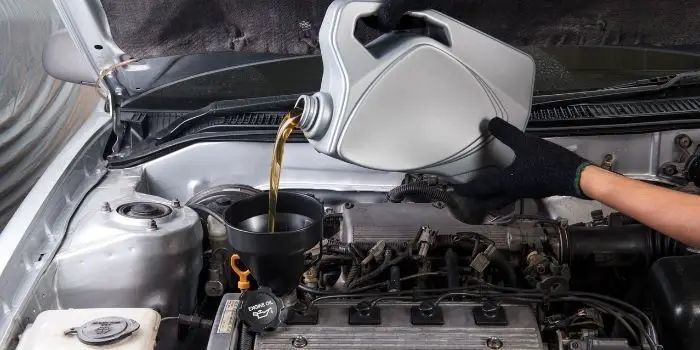Almost any engine can have problems, and the Dodge 3.0 EcoDiesel is no exception.
However, this engine has an excellent reputation for reliability and few common issues.
In this blog post, we’ll look at some of the most common problems with the Dodge 3.0 EcoDiesel engine and how to fix them.
So if you’re thinking about buying a truck with this engine or already own one, you’ll want to read on!
Table of Contents
What is Dodge 3.0 EcoDiesel Engine?
The Dodge 3.0 EcoDiesel engine is a fuel-efficient engine available in select Dodge vehicles. This engine uses advanced technology to reduce emissions and improve fuel economy.
The 3.0L EcoDiesel V6 engine can deliver up to 30 highway mpg and features best-in-class torque and towing capacity.
In addition, this engine is designed to run on both biodiesel and ultra-low sulfur diesel fuel.
As a result, the Dodge 3.0 EcoDiesel engine is an ideal choice for drivers looking for a fuel-efficient engine that can handle their needs.
How Reliable is Dodge 3.0 EcoDiesel Engine?
The 3.0 EcoDiesel engine is one of the most reliable engines today, which has a proven track record of superior performance and durability, and a 5-year/100,000-mile warranty backs it.
Dodge vehicles equipped with this engine have won numerous awards, including the North American Truck of the Year and the Motor Trend Truck of the Year.
The 3.0 EcoDiesel engine is also available in several different models so that you can find the perfect match for your needs.
Whether you’re looking for fuel economy, towing power, or off-road capability, a Dodge 3.0 EcoDiesel engine is right for you.
What are the Most Common Problems Seen with Dodge 3.0 EcoDiesel Engines?
The 3.0 EcoDiesel engine is reliable, but it can have problems like all engines. The most common problem with this engine include the following:
1- Oil Cooler Failure
The oil cooler is a common failure point that can cause the engine to overheat, causing severe damage to the engine.
An oil cooler is a device used to cool engine oil. It is usually located in the front of the engine, near the radiator.
The oil cooler consists of a series of metal fins that act as heat exchangers.
The engine oil is circulated through the fins, and the air is forced over the fins by the engine’s cooling fan. The air cools the oil, and the cooled oil is circulated back to the engine.
If you notice that your truck is running hot or if you see any leaks coming from the oil cooler, it’s important to have it repaired or replaced as soon as possible.
2- EGR Cooler Failure
An EGR cooler is a device that cools exhaust gases before they are recirculated into the engine.
The purpose of an EGR cooler is to reduce emissions by lowering the temperature of the exhaust gases, which reduces the formation of NOx.
Common problems with EGR coolers include leaks and clogging.
Leaks can occur in the coolant lines or at the gasket between the cooler and the engine. Clogging can arise if debris accumulates in the cooler or if the cooler itself becomes restricted.
If you notice that your truck is running hot or if you see any leaks coming from the EGR cooler, it’s essential to have it repaired or replaced as soon as possible.
3- Leaking Exhaust Couplers
An exhaust coupler is a device that connects two pipes, allowing exhaust gases to flow from the engine to the muffler.
Couplers are located between the exhaust manifold, the catalytic converter, and between the catalytic converter and the muffler.
Over time, exhaust couplers can become corroded or damaged due to exposure to heat and exhaust gases.
When this happens, it can cause exhaust leaks which can be dangerous.
If you have a terrible exhaust coupler, you may notice symptoms such as a drop in fuel economy, an increase in engine noise, and exhaust fumes coming into your vehicle’s cabin.
If you notice any exhaust leaks, it’s vital to have them repaired as soon as possible.
4- Slipping Camshaft Gear
The camshaft is responsible for opening and closing the valves in your engine, and the timing belt or chain ensures that the camshaft turns in sync with the crankshaft.
If the teeth on the gear become damaged or worn, it can cause the camshaft to slip out of sync with the crankshaft.
This can lead to a loss of power and decreased fuel economy. In some cases, it can even cause your engine to stall.
The camshaft gear can slip on the 3.0 EcoDiesel engine, which can cause the engine to lose power and performance.
If you notice that your truck is losing power or hear strange noises from the engine, it’s crucial to have the camshaft gear inspected and replaced if necessary.
Conclusion
In conclusion, the 3.0 EcoDiesel engine is reliable, but some common problems can occur.
If you notice any of the symptoms mentioned above, it’s essential to have your truck inspected by a qualified mechanic as soon as possible before the problems get worse and unrepairable.

Based in Orem (Utah) John Paterson graduated from Utah Valley University and has begun writing in 2009. He has a large wealth of experience in writing articles related to cars, automotive repair, wheels, cleaning/maintenance, and much more. He has also written instructional articles in a similar niche for a few online publications as well. Currently, he works as a mechanic in his personal garage shop where he loves serving his countrymen from his heart.




